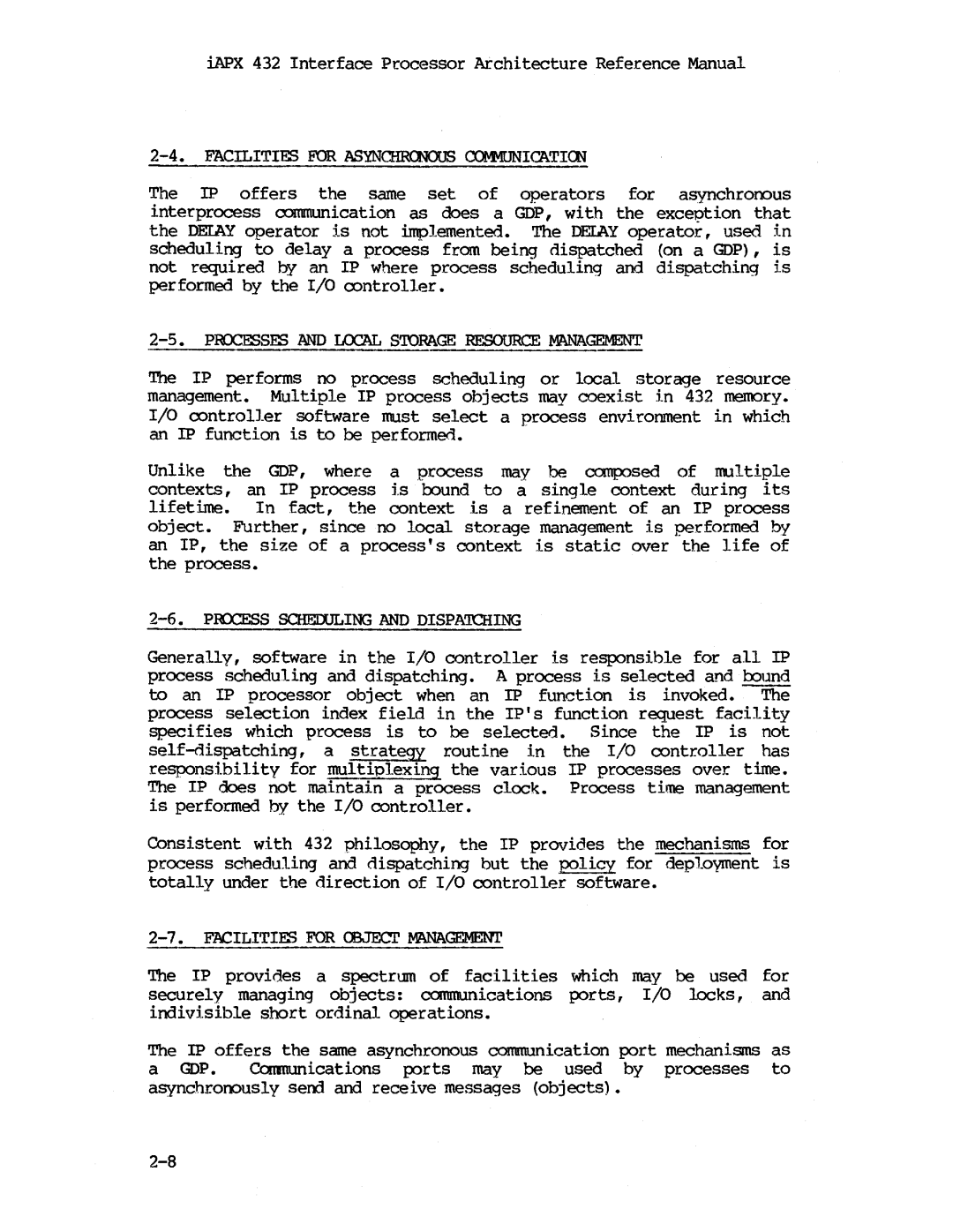
iAPX 432 Interface Processor Architecture Reference Manual
The IP offers the same set of operators for asynchronous interprocess communication as does a GOP, with the excey;>tion that the DEIAY operator ls not implemented. The DEIAY operator, used in scheduling to delay a process from being dispatched (on a GOP), is not required by an IP where process scheduling and dispatching is per formed by the I/O oontroller.
2-5. POOCESSES AND LOCAL STORAGE RESOURCE MANAGEMENT
The IP performs no process scheduling or local storage resource management. Multiple IP process objects may coexist in 432 memory. I/O oontroller software nust select a process envi rornnent in which an IP function is to be performed.
Unlike the GOP, where a process may be composed of nultiple contexts, an IP process is bound to a sing Ie context dur ing its lifetime. In fact, the context is a refinement of an IP process object. Further, since no local storage management j.s performed by an IP, the size of a process's context is static over the life of the process.
Generally, software in the I/O controller is responsible for all IP process scheduling and dispatching. A process is selected and bound to an IP processor object when an IP function is invoked. The process selection index field in the IP's function request facility specifies which process is to be selected. Since the IP is not
Consistent with 432 philosophy, the IP provides the mechanisms for process scheduling and dispatching but the PQlicy for deployment is totally under the direction of I/O controller software.
2-7. F1-\CILITIES FOR 0BJEC1'MANAGEMENT
The IP provides a spectrum of facilities which may be used for securely managing obj ects: communications ports, I/O locks, and indivi.sible short ordinal operations.
The IP offers the same asynchronous communication port mechanisms as
a GOP. Canmunications ports may be used by processes to asynchronously send and receive messages (objects).
